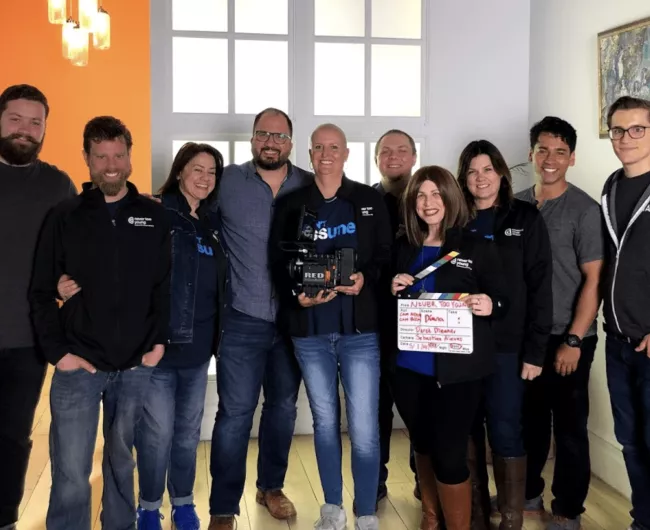Never Too Young Survey Report
Young-onset colorectal cancer patients and caregivers should have their voices heard and stories told. The Never Too Young Survey Report amplifies the experiences of this often-overlooked group.

Download the report
The latest report (2020), divided into patient and caregiver editions, details the unmet needs of the young-onset colorectal cancer community.
Selected survey findings
The survey report details dozens of findings from more than 1,000 patients and caregivers. These are just a few.
of patient survey respondents were initially misdiagnosed, 43% with hemorrhoids alone or in combination with other conditions.
patients, ages 19-39, were more likely to report that a doctor dismissed their concerns.
of patients saw three or more doctors before receiving a diagnosis of colorectal cancer.
of young patients were told about fertility preservation, while 37% of women and 16% of men reported treatment-related infertility or sterilization.
of patients were working full-time at the time of diagnosis, and 28% of those patients were no longer working.
of stage III and 61% of stage IV (metastatic) patients did not have any discussion of clinical trials before starting treatment.
of patients reported concerns about their mental health, and 64% said they required help for depression.
of patients expressed a fear of recurrence, which is when the cancer comes back.
of patients reported having at least three symptoms of colorectal cancer before being diagnosed.
About the survey report
In 2016, the Colorectal Cancer Alliance initiated a pioneering survey on young-onset colorectal cancer. This effort aimed to comprehend the distinct challenges and unmet needs faced by patients under the age of 50. The 2018 iteration of the survey was the first to include caregivers, a section that saw substantial expansion in the survey reports published in 2020.
Alliance research and other evidence highlight a troubling trend: Younger patients are often diagnosed with advanced disease, necessitating aggressive treatment. This situation contrasts with diagnoses made post-50. Despite the increase in young-onset cases, limited studies address the effects on patients’ and survivors’ quality of life (QoL) and their specific unmet needs.
By analyzing aggregated, self-reported results, the Alliance aspires to enlighten both the young-onset colorectal cancer community and healthcare providers about prevailing trends and gaps in the care of affected patients, survivors, and caregivers.
Previous reports
Learn more
Young-onset CRC overviewTop resources

Legislation introduced to address young-onset CRC
Explore the urgent need for the Colorectal Cancer Early Detection Act (HR 7714), legislation aimed at combating the rising incidence of colorectal cancer among younger adults through enhanced screening, education, and research.

EPIC Act to Advance New CRC Therapies Needs Support
The EPIC Act would encourage investment in clinical trials for additional uses of existing drugs.

Cousins to Rev Down Route 66 for a Reason
In a remarkable blend of adventure and advocacy, cousins John, Mitch, and Mike are gearing up for a cross-country charity journey along Route 66. Their mission? To raise awareness and support for two important causes: cystic fibrosis and colorectal cancer.





